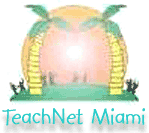|
How It Works:
This unit was created to motivate students with something they love,
chocolate! The theme is launched with the reading of the story The Chocolate
Touch. This is a story of a boy who loves chocolate and everything his
mouth touches, turns into chocolate. Once the interest in chocolate is
sparked, introduce students to the cacao plant. Class discussions and
background read out loud introduce each lesson to the students and direct them in
exploring for themselves this unique plant. Students explore its
history, how chocolate is made and how they, as concerned global citizens,
can help stop the slavery of cacao plantations and farms. It is an interesting theme to work across the
curriculum.
Standards:
Language Arts
1. Reads text and determines main idea, relevant details and arranges events
in chronological order
2. Understands development of plot and how conflicts are resolved in a story
3. Recognizes Cause and effect relationships in literary texts
Science
1. Knows that living things are different but share similar structures
2. Understands how organisms compete for food, water and shelter
3. Identify structural or behavioral adaptations which help living things
survive
Social Studies
1. Reads, interprets and creates a timeline identifying the order of events
2. Knows selected consequences of exploration
3. Knows ways human activity has affected the physical environment
Math
1. Identifies parts of a whole
2. Identifies how parts of a whole can be equal to other parts
Estimated Class Periods To Complete:
10 or more
Software Materials Used:
Students will need access to the Internet, which will be their main source
of research and a printer to print selected worksheets. Word or other
software to publish work and create graphs and tables. Also PowerPoint or
KidPix is needed to make a slide presentation.
Keywords:
Cacao, cocoa, chocolate, candy, pod, pulp, cultivated, Forastero, Criollo,
Trinitario, midge, pollinate, harvest, ferment, nib, alter, mold, grind,
winnow, manufacturer, refine, ingredient, conch, origin, plantation,
fraction, factor, numerator, denominator, slaves
Students:
This unit was developed for 3rd grade level as a motivating topic. It can
be adapted for upper intermediate grades. The students must know how to use
the Internet, have a basic knowledge of computers and how to use the
designated software. Reading is a must because students will get most of
their information from reading passages on the internet. Students work in
groups to help each other in the acquisition of knowledge through the World
Wide Web and various software.
Overall:
From candy bars to medicine, chocolate is a key ingredient in many foods.
It is on the top of the list of the favorite flavor of most Americans and
around the world. Most people don't even know its origin. Through this unit,
students will find out about the science and structure of this unusual tree.
They will uncover the secrets of this plant and learn how it can be made
into chocolate. Students explore its origin and follow it throughout time and get the
insight into the development of the chocolate industry in the United States.
See and experience how a cacao goes from seed to sweet. Finally, they use a
chocolate bar to do some math.
Tips:
Copy the student activity instructions and any worksheets for each lesson.
Bookmark all URL's that are on the worksheets to make the search easier and
faster for the student. Model the use of the different software that the
students will be using before beginning the unit. Before giving students a
taste of chocolate, make sure that no student is allergic to chocolate.
|
About the Teacher:
Elizabeth is a graduate of Florida International University and has been
teaching in Miami-Dade County Public Schools since 1998. Having fifteen
years of experience in the corporate world has made it easy for Elizabeth to
incorporate technology into the classroom. Elizabeth is an active
participant of Citibank FamilyTech program and has received several
grants to implement interdisciplinary technology-based units.
Subjects:
Language Arts, Science, Social Studies & Math
Grade Levels:
3-5
Email Elizabeth
|

